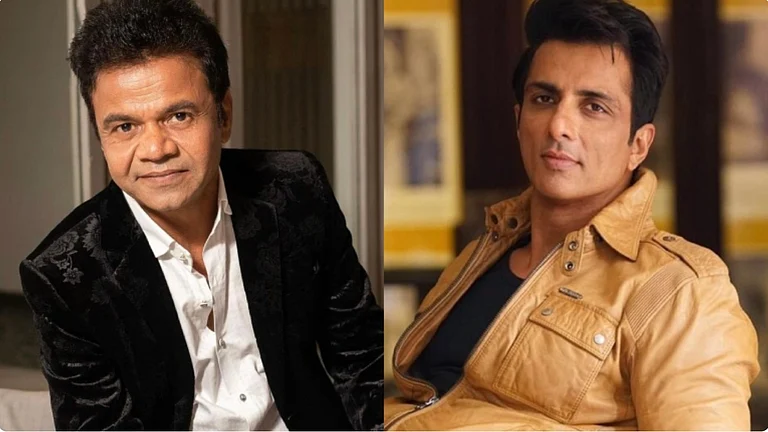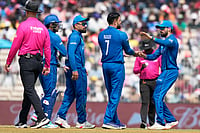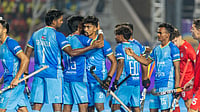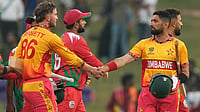Nepal is ready to hold general elections in a free, fair and impartial manner, the country's election commission has promised as a group of international observers, including from India, have arrived here to watch the poll process.
Nepal is scheduled to hold elections on Sunday to elect 275 members of the federal Parliament and 550 seats of the seven Provincial Assemblies.
The elections to the House of Representatives and provincial assemblies will be conducted in an environment better than earlier, the General Elections Observation Committee (GEOC) said on Friday on the basis of a report on the pre-election period.
According to Chief Election Commissioner (CEC) Dinesh Kumar Thapalia, political parties and candidates have been following the code of conduct and thus created a conducive environment for the democratic exercise.
However, action will be taken against anyone violating the election code of conduct, the CEC said.
The Election Commission had earlier said the violation of the 'Silence Period' that has been enforced since Friday midnight in view of the elections was "punishable by law".
Observers from various countries, including India, have started gathering in Nepal to observe the elections.
Election observation mainly involves field monitoring of elections by one or more independent parties from another country or from non-governmental organisations.
The accredited observers will assess the conduct of the election process in line with national laws and international election standards of observation.
India's Chief Election Commissioner Rajiv Kumar on Friday reached Kathmandu as an international observer for the Sunday elections.
Kumar, 62, is leading a four-member delegation, including two officials from the Election Commission of India.
Kumar, who is here at the invitation of CEC Thapaliya, will join other international delegates from countries such as Bangladesh, Bhutan, South Korea and Maldives to observe the election on Sunday.
Kumar will visit polling stations in Kathmandu and surrounding areas before wrapping up his five-day visit on November 22.
Election Commissioner of South Korea Cho Byeong-Hyun, Maldives Election Commission Chairperson Fuwad Thowfeek, and Takei Shunsuke, state minister for Foreign Affairs of Japan, also arrived in Kathmandu on Friday for election observation.
According to the International Election Observers Accreditation (Supplementary) Directive, 2022, issued by the EC, it is mandatory for the international election observers to recognise and respect the custom, culture and sovereignty of Nepal while carrying out their roles.
The observers are also required to perform their duties impartially, objectively and independently and should not indicate or express any political bias or preference.
Former chief justice Kalyan Shrestha said that since there were no agitations and disturbances, the elections this time would be conducted in a peaceful manner.
This time the campaigning for the elections was also not too expensive and flamboyant, Shrestha added.
Another former chief justice Sushila Karki said discipline shown by the parties and candidates in election campaigning indicated that democracy was moving in the direction of consolidation in the country, reported the Himalayan Times.
Former chief election commissioner Bhojraj Pokharel said the preparation and management of the election till now had ensured that polling would be completed peacefully.
Nepal Law Society President Tirthaman Shakya and Executive Director Krishnaman Pradhan shared that the GEOC had been conducting observation of elections through 331 representatives in 261 municipalities of 36 districts on party registration, candidate nomination and election campaigning, among others.
The GEOC also said that 10 special observers, 24 national observers, 36 district observers, and 261 local observers will be mobilised on the election day.
The report suggested that compared to the past experience there had been improvement in voter list, candidacy registration, implementation of code of conduct, security arrangement, ballot paper, polling station, voter education and staff management, etc.


























